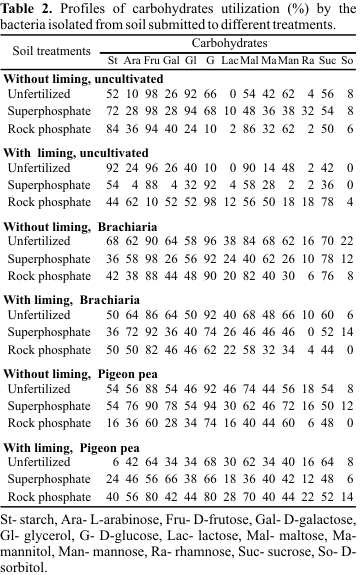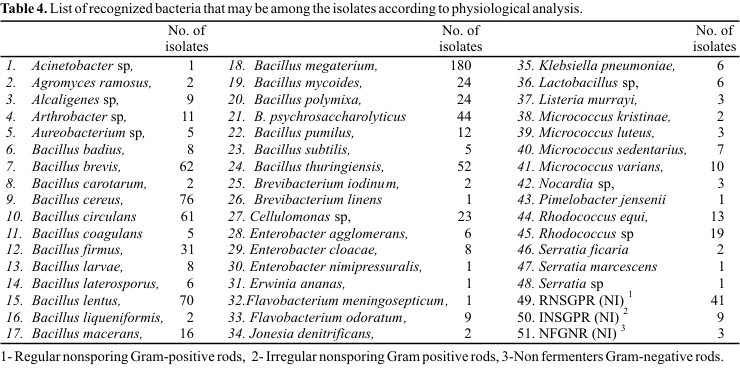The diversity of bacterial isolates from soil in response to different plants (control, Brachiaria ruziziensis and Cajanus cajan), fertilization (control, simple superphosphate and rock phosphate) and liming (with and without lime) was evaluated. Phenotypic and physiological characteristics of the isolates were recorded and organized in a file to identify the bacteria. Among the isolates, 95% were Gram-positive and 5% Gram-negative rods. Soil cultivated with B. ruziziensis favored the nonsporing Gram-positive and Gram-negative rods compared to soils with C. cajan or uncultivated. Number of spore-forming Gram-positive rods were higher in plots with superphosphate than in unfertilized soil or soil fertilized with rock phosphate. In unfertilized plots, larger number of Gram-positive cocci and Gram-negative rods was obtained than in fertilized plots. Unlimed plots favored spore-forming Gram-positive rods, Gram-positive cocci and Gram-negative rods, while with liming a larger proportion of nonsporing Gram-positive rods was found. From 7 to 86% of the total isolates utilized different carbohydrates. The recording data used in this experiment was effective in the isolates identification, and might be useful for diagnosis of soil bacteria. Bacillus, Cellulomonas, Rhodococcus, Enterobacter, Flavobacterium, Micrococcus and Arthrobacter were the genera more commonly found. Bacterial diversity was enhanced in limed, unfertilized and plant cultivated plots.
bacteria; phosphate; Brachiaria ruziziensis; Cajanus cajan; liming





